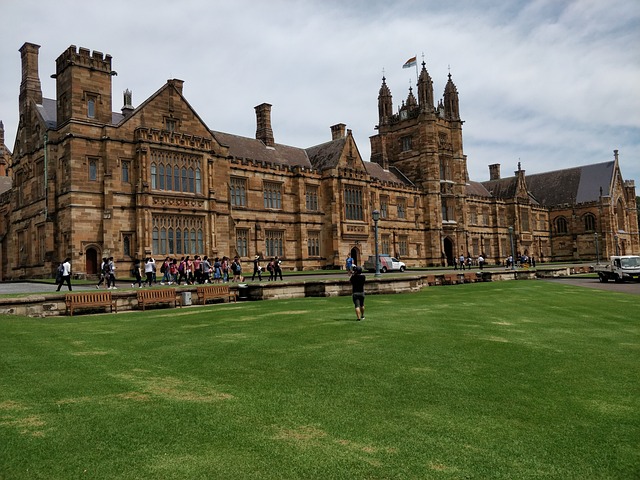
Importance of Choosing the Right Test
Choosing the right test is a crucial step for study abroad applicants. The test you choose can have a significant impact on your chances of getting accepted into your desired graduate program.
The two most popular tests for graduate school admissions are the GMAT (Graduate Management Admission Test) and the GRE (Graduate Record Examination).
In this post, we will help you decide which test is right for you by discussing the key differences and similarities between the GMAT and GRE, factors to consider when choosing between the two, and the pros and cons of each test for study abroad applicants.

GMAT vs. GRE: Key Differences and Similarities
The GMAT is primarily used for business school admissions, while the GRE is used for a variety of graduate programs.
If you are applying to a business school, it is highly recommended to take the GMAT.
On the other hand, if you are applying to a non-business program, such as engineering or social sciences, the GRE is a more suitable choice.
One of the key differences between the GMAT and GRE is their focus on different subject areas.
The GMAT has a stronger emphasis on quantitative skills, including math and data analysis. This is because business schools place a high value on these skills.
On the other hand, the GRE has a more balanced approach, with equal weightage given to verbal reasoning, quantitative reasoning, and analytical writing.
Despite these differences, both tests have some similarities.
Both the GMAT and GRE have verbal and analytical writing sections.
The verbal section tests your ability to understand written material, evaluate arguments, and correct written material.
The analytical writing section assesses your ability to analyze an argument and write a coherent response.
Additionally, both tests are computer-adaptive, meaning that the difficulty of the questions adjusts based on your performance. This adaptive format ensures that each test taker receives questions that are tailored to their skill level.
Factors to Consider When Choosing Between GMAT and GRE
When deciding between the GMAT and GRE, there are several factors that you should consider.
Firstly, you need to consider your target schools and programs.
Some schools may require or prefer one test over the other.
It is important to research the admissions requirements and preferences of your target schools before making a decision.
This will ensure that you choose the test that aligns with the expectations of your desired program.
Secondly, you should assess your strengths and weaknesses in different subject areas.
If you excel in quantitative skills and feel confident in your math abilities, the GMAT may be a better fit for you.
On the other hand, if you are more comfortable with verbal reasoning and writing, the GRE may be a better choice.
It is important to choose the test that allows you to showcase your strengths and minimize your weaknesses.
Your personal preferences and test-taking style should also be taken into consideration.
Some individuals may prefer the structure and content of one test over the other. It is important to choose the test that you feel most comfortable with and confident in.
Additionally, consider your test-taking style. If you perform well under time pressure and can handle adaptive questions, both tests may be suitable for you.
However, if you struggle with time management or find adaptive questions stressful, you may want to choose the test that aligns better with your test-taking style.
Lastly, consider the cost and availability of each test.
The GMAT is generally more expensive than the GRE.
You should take into account your budget and financial constraints when making a decision.
Additionally, consider the availability of test centres in your area. Ensure that there are convenient test centres for the test you choose.
The Role of Your Target School in Test Selection
Your target school plays a significant role in determining which test you should choose.
Some schools may require or prefer one test over the other. It is important to research the admissions requirements and preferences of your target schools before making a decision.
This information can usually be found on the school’s website or by contacting the admissions office directly.
If your target school requires a specific test, it is important to prioritize that test.
Admissions committees often have specific reasons for requiring a particular test. By choosing the required test, you are demonstrating your commitment to the school and its admissions process.
However, if your target school does not have a preference, you have more flexibility in choosing the test that aligns with your strengths and preferences.
GMAT: Pros and Cons for Study Abroad Applicants
The GMAT has several advantages for study abroad applicants.
One of the main advantages is its strong focus on quantitative skills.
If you are applying to a business school or a program that requires strong quantitative skills, the GMAT is highly regarded by admissions committees.
A high GMAT score can demonstrate your ability to handle complex mathematical concepts and data analysis, which are essential skills for many business programs.
Another advantage of the GMAT is its wide acceptance by business schools around the world.
The GMAT is recognized and accepted by thousands of business schools globally.
This means that by taking the GMAT, you have a wide range of options when it comes to choosing a business school for your study abroad experience.
However, there are also some drawbacks to consider when it comes to the GMAT.
One of the main drawbacks is its cost.
The GMAT is more expensive than the GRE, with registration fees ranging from $250 to $350.
Additionally, if you need to retake the test, you will need to pay the registration fee again. This can add up quickly, especially if you need to take the test multiple times to achieve your desired score.
Another drawback of the GMAT is its relevance for non-business programs.
If you are applying to a non-business program, such as engineering or social sciences, the GMAT may not be as relevant or highly regarded by admissions committees.
In this case, it may be more beneficial to take the GRE, which has a more balanced approach and is accepted by a wide range of graduate programs.
GRE: Pros and Cons for Study Abroad Applicants
The GRE also has several advantages for study abroad applicants. One of the main advantages is its more balanced approach.
The GRE assesses your verbal reasoning, quantitative reasoning, and analytical writing skills.
This can be beneficial if you have strengths in multiple subject areas or if you are applying to a non-business program that requires a well-rounded skill set.
Another advantage of the GRE is its wide acceptance by graduate programs around the world.
The GRE is recognized and accepted by thousands of graduate programs in various disciplines.
This means that by taking the GRE, you have a wide range of options when it comes to choosing a graduate program for your study abroad experience.
However, there are also some drawbacks to consider when it comes to the GRE.
One of the main drawbacks is its less emphasis on quantitative skills compared to the GMAT.
If you are applying to a business school or a program that requires strong quantitative skills, the GRE may not be as highly regarded by admissions committees.
In this case, it may be more beneficial to take the GMAT, which has a stronger focus on quantitative skills.
Preparing for GMAT: Tips and Strategies
Preparing for the GMAT requires careful planning and dedicated practice.
Here are some tips and strategies to help you succeed on the GMAT:
1. Practice with official GMAT materials: The GMAT is a unique test with its own question types and format. It is important to practice with official GMAT materials to familiarize yourself with the test content and question types. Official GMAT materials can be purchased online or borrowed from libraries.
2. Focus on improving your quantitative skills: As the GMAT has a strong focus on quantitative skills, it is important to dedicate time to improving your math abilities. Review basic math concepts and practice solving quantitative problems under timed conditions. Identify your weak areas and focus on improving them.
3. Time management is key: The GMAT is a timed test, and time management is crucial for success. Practice solving questions under timed conditions to improve your speed and accuracy. Develop strategies for managing your time effectively during the test.
Preparing for GRE: Tips and Strategies
Preparing for the GRE also requires careful planning and dedicated practice.
Here are some tips and strategies to help you succeed on the GRE:
1. Practice with official GRE materials: Like the GMAT, the GRE is a unique test with its own question types and format. It is important to practice with official GRE materials to familiarize yourself with the test content and question types. Official GRE materials can be purchased online or borrowed from libraries.
2. Focus on improving your weaker subject areas: The GRE assesses verbal reasoning, quantitative reasoning, and analytical writing skills. Identify your weaker subject areas and focus on improving them. Dedicate time to practicing verbal and quantitative questions, as well as writing practice essays.
3. Time management is key: The GRE is a timed test, and time management is crucial for success. Practice solving questions under timed conditions to improve your speed and accuracy. Develop strategies for managing your time effectively during the test.
Taking the Test: What to Expect and How to Succeed
Familiarizing yourself with the test format and question types is essential for success on both the GMAT and GRE.
Here are some tips to help you succeed on test day:
1. Familiarize yourself with the test format: Take the time to understand the structure of the test, including the number of sections, question types, and time limits. This will help you feel more comfortable and confident on test day.
2. Practice under timed conditions: Both the GMAT and GRE are timed tests, so it is important to practice under timed conditions. This will help you develop a sense of timing and improve your speed and accuracy.
3. Stay calm and focused during the test: Test Day can be stressful, but it is important to stay calm and focused. Take deep breaths, stay positive, and trust in your preparation. Remember that you have put in the time and effort to prepare for the test, and you are capable of achieving your goals.
Making the Final Decision and Moving Forward with Confidence
Choosing the right test is a crucial step for study abroad applicants. By considering factors such as your target schools and programs, your strengths and weaknesses in different subject areas, your personal preferences and test-taking style, and the cost and availability of each test, you can make an informed decision.
Trust your instincts and choose the test that feels right for you. With the right preparation and mindset, you can succeed on either the GMAT or GRE and achieve your study abroad goals.
Remember to practice with official materials, focus on improving your weaker areas, manage your time effectively, and stay calm and focused during the test.






















